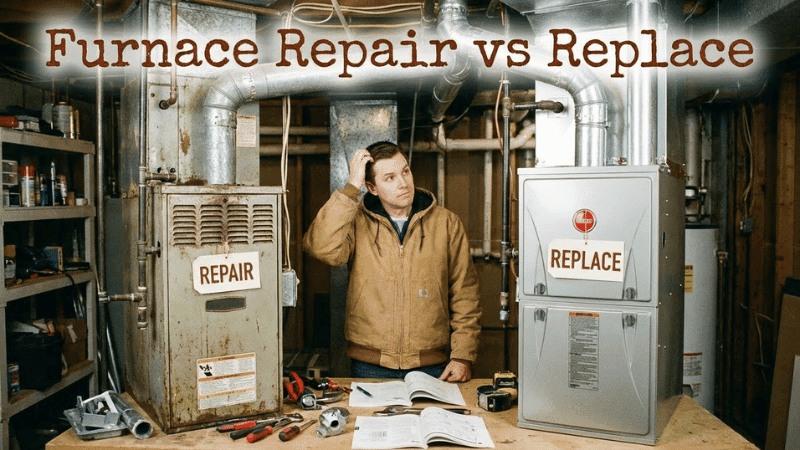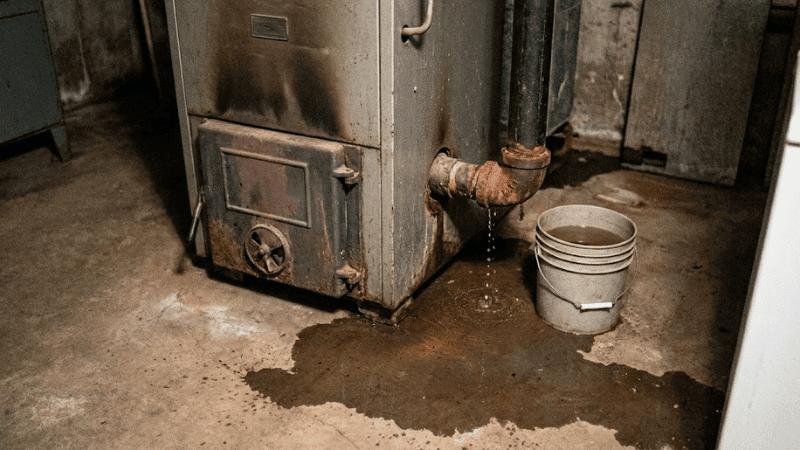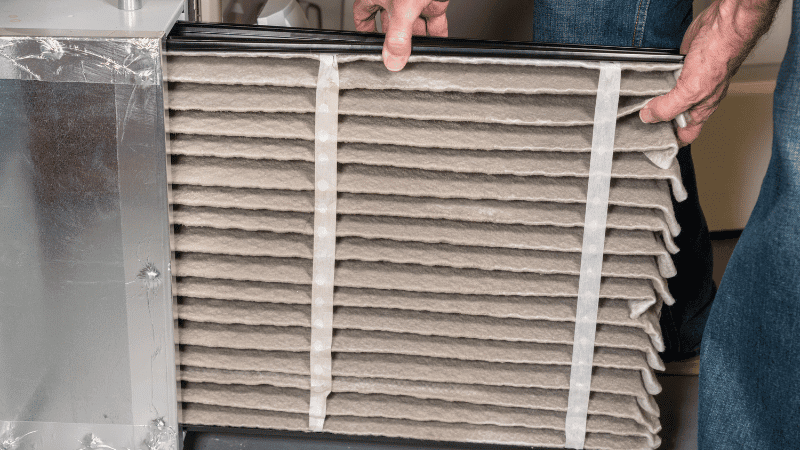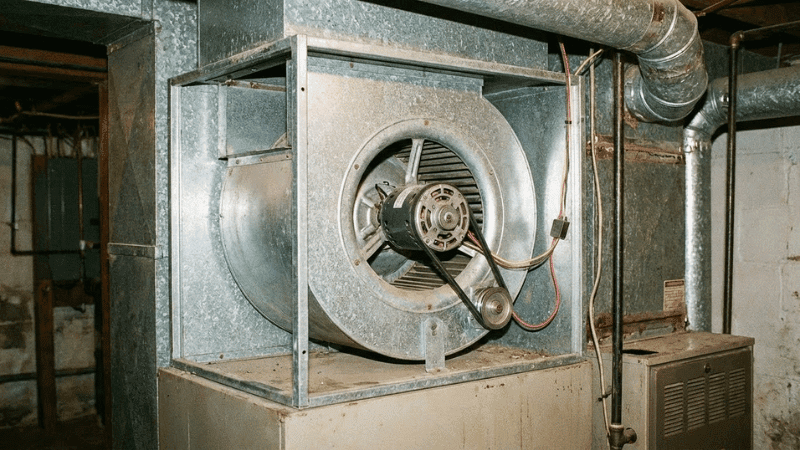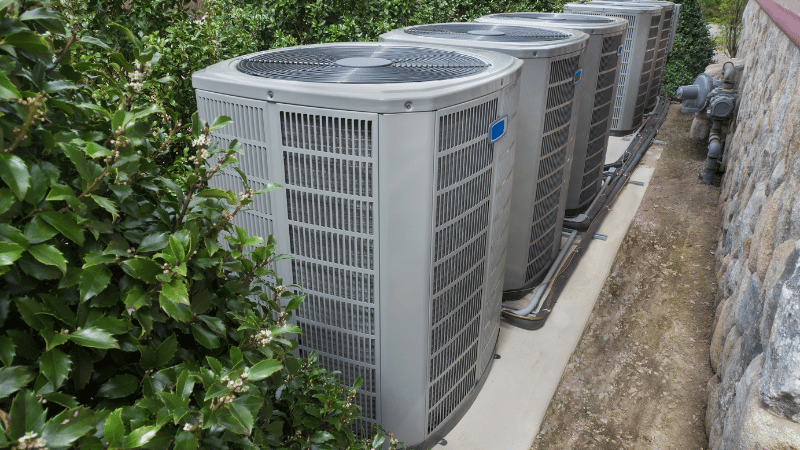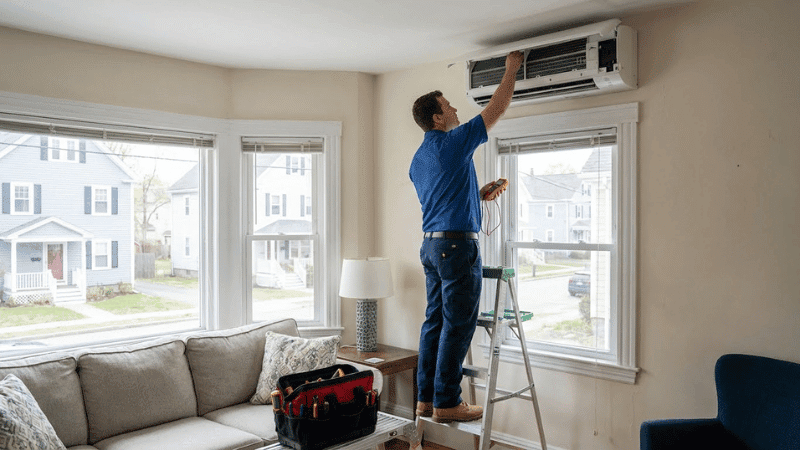What is the lifespan of an HVAC?
If you’ve ever asked yourself, “How long does an HVAC system last?”, you’re not alone. Your HVAC system is one of the most essential—and expensive—components in your home. Whether it’s battling the summer heat or keeping you warm in the winter, your system works hard year-round. So understanding its average lifespan, what affects it, and how to get the most out of it is not just smart—it’s necessary.
Most HVAC systems typically last between 15 to 25 years, depending on factors like usage patterns, installation quality, and routine HVAC maintenance. But it’s not just about how long it lasts—it’s about how well it performs over time.
Here’s why lifespan matters:
- A well-maintained system can save you thousands in energy costs
- Replacing your system too early wastes money
- Ignoring signs of failure can result in emergency breakdowns
System Type | Average Lifespan (Years) |
Central Air Conditioner | 12–17 |
Furnace / Boiler | 15–30 |
Heat Pump | 10–20 |
Ductless Mini-Split | 10–30 |
With regular air filter replacement, proper airflow, and a focus on energy efficiency, your HVAC system can offer long-term comfort without draining your wallet. Let’s explore what really determines an HVAC’s life expectancy.
Average Lifespan of HVAC System Types
So, you’re wondering how long your HVAC system will hold up before you need to start shopping for a replacement? The answer depends on what kind of system you’re running—and how well you treat it.
Let’s break it down by equipment type, because not all systems are created equal:
- Furnaces (especially gas ones) are the long-haulers of the HVAC world, often lasting 20 to 30 years with proper HVAC maintenance. However, oil furnaces tend to give out a bit earlier, around 10 to 15 years, due to fuel inefficiency and buildup.
- Boilers run neck and neck with furnaces, typically hitting the 20 to 35-year mark. Most are retired when their heat exchanger starts leaking.
- Central Air Conditioners can give you a solid 12 to 17 years, but that number shrinks in coastal areas where salt corrosion is a real villain.
- Heat Pumps are versatile, but because they work year-round (heating and cooling), they usually cap out around 10 to 20 years.
- Ductless Mini-Splits are flexible and efficient. Their lifespan? Anywhere between 10 to 30 years—assuming they’re not dealing with extreme elements.
- Got a geothermal system? Lucky you. Geothermal heat pumps can last 25 to 30 years, and their ground loops? Up to 50 years!
- Evaporative Coolers, while cost-effective, tend to fade faster—think 5 to 15 years on average.
Every system has its clock, but regular servicing, smart usage, and proper installation can buy you serious time.
Factors That Influence HVAC Lifespan
Let’s get one thing straight—your HVAC system isn’t just running on cool air and good vibes. How long it actually lasts comes down to a handful of key lifespan influencers. And believe it or not, you have more control over this than you might think.
1. Routine HVAC Maintenance is a Game-Changer
If you’ve ever ignored a blinking dashboard light in your car, you know what happens next: a costly repair. The same logic applies here. Without regular HVAC maintenance, you’re asking for trouble. That means:
- Changing air filters every 1–3 months
- Scheduling tune-ups before peak heating or cooling seasons
- Keeping refrigerant levels and moving parts in check
These small habits extend your unit’s life and keep it running efficiently.
2. Quality of Installation Matters More Than You Think
Even a top-tier HVAC unit can flop if it’s installed poorly. Improper sizing, inadequate airflow, and sloppy ductwork design can overwork your system and lead to early failure. Always go with a certified, well-reviewed HVAC contractor—this isn’t the time to cut corners.
3. Environmental Conditions Play a Big Role
Are you near the coast? That salty air is the enemy of your condenser coils. Live in a super humid or dusty area? Your air quality is taking a toll. Even something as simple as poor home insulation can force your system to overcompensate.
Pro tip: Add air purifiers, seal up leaks, and make sure your home’s properly ventilated.
4. Usage Habits Count Too
Leaving your system running 24/7 on high? That’s like sprinting a marathon. Use smart thermostats, set schedules, and switch to auto settings to reduce wear and tear.
Master these areas, and you’re looking at a longer, more efficient HVAC life.
Signs Your HVAC May Be Nearing End of Life
Let’s face it—HVAC systems don’t last forever. But the good news? They usually give off warning signs before they completely call it quits. Think of these like your system’s way of waving a white flag.
Here are the major red flags to look out for:
1. Constant Repairs Are Draining Your Wallet
If you’re on a first-name basis with your HVAC technician, it’s probably time to reassess. Frequent breakdowns and part replacements mean your system is wearing down. Instead of spending more on HVAC repairs, it might be smarter to invest in a new unit.
2. Heating and Cooling Efficiency Takes a Hit
Are you sweating through summer or layering up indoors during winter? That’s a telltale sign your system’s losing steam. An inefficient HVAC system struggles to maintain a consistent temperature, forcing it to work harder—resulting in skyrocketing energy bills.
3. Weird Noises or Funky Odors
Grinding, rattling, squealing—none of these sounds belong in a healthy HVAC system. Add in any musty or burning smells, and you’ve likely got mold, electrical issues, or a failing blower motor on your hands.
4. Age Is More Than Just a Number
Most HVAC systems last 15 to 20 years, max. If yours is creeping past that range—even if it’s still running—its energy efficiency is probably outdated and operating costs are higher than necessary.
Catching these replacement signs early can save you from emergency breakdowns and help you plan ahead for a smooth upgrade.
Cost vs. Benefit: Repair or Replace?
So your HVAC system is making odd noises, your energy bills are rising, and your home isn’t feeling as comfy as it used to. Now you’re stuck with the age-old dilemma: repair it or replace it?
Here’s how to make a smart, budget-friendly decision.
1. Do the Math
If your unit is over 15 years old and repairs are stacking up, replacing might actually be cheaper in the long run. A good rule of thumb? If repair costs exceed 50% of the price of a new system, go for the upgrade.
2. Consider Energy Efficiency Gains
Modern high-efficiency HVAC systems are leaps ahead in technology. Upgrading to a new unit with a higher SEER rating can save you 20–40% on your monthly bills. That’s money back in your pocket.
3. Think Long-Term Comfort & Reliability
Newer systems offer better temperature control, quieter operation, and smart thermostat compatibility. And let’s not forget—reliability matters. No one wants to wake up in July with a busted compressor.
4. Don’t Forget Rebates and Incentives
Replacing your system doesn’t have to break the bank. Look into federal tax credits, local utility rebates, or manufacturer offers. Sometimes, the out-of-pocket cost is a lot lower than expected.
Ultimately, this choice isn’t just about now—it’s about saving on HVAC costs in the long haul and upgrading your home’s energy efficiency and comfort for years to come.
How to Extend the Lifespan of Your HVAC System
Here’s the good news: your HVAC system’s lifespan isn’t set in stone. With the right care, you can squeeze out several more years of cool summers and cozy winters—without emptying your wallet on repairs.
Let’s break down the top strategies to keep your system running like a champ.
1. Prioritize Regular HVAC Maintenance
Neglect is the silent killer of HVAC systems. Staying ahead with seasonal tune-ups, checking refrigerant levels, and cleaning coils will keep everything in check.
- Schedule professional HVAC servicing at least once a year
- Inspect and clean outdoor units to prevent debris buildup
- Lubricate moving parts to reduce wear
2. Change Your Air Filters—Religiously
Clogged filters force your system to work harder, which means more wear and tear. Not to mention, it kills your indoor air quality.
- Swap filters every 1–3 months, depending on usage and household factors (like pets)
- Use high-quality filters that trap allergens and dust
3. Improve Home Insulation
Better home insulation means less work for your HVAC system. It’ll maintain the desired temperature with fewer cycles.
- Seal gaps around doors and windows
- Insulate attics and basements
- Install thermal curtains for extra efficiency
4. Use Smart Thermostats and Auto Settings
Running your system full blast 24/7? Not ideal. A smart thermostat lets you control temperatures based on your schedule.
- Use the “Auto” setting to minimize unnecessary cycles
- Program settings for sleep, work hours, and vacations
- Monitor usage and adjust to reduce energy strain
A little consistency goes a long way. These simple habits can make your HVAC system last longer, perform better, and save you serious cash over time.
When to Consider a New HVAC System
Sometimes, no matter how much you baby your HVAC system, the time comes to say goodbye. But how do you know when it’s actually the right time to replace it—not too early, not too late?
Here are the clear signals that your system may be ready for retirement:
1. It’s Reached the End of Its Lifespan
If your unit is 15–20+ years old, even if it’s still running, it’s likely running less efficiently and costing you more in energy bills. Modern high-efficiency systems are built to perform better, with less power.
2. You’re Ready for Better Technology
Newer systems offer major upgrades like:
- Higher SEER ratings (Seasonal Energy Efficiency Ratio)
- Smart thermostat compatibility
- Quieter operation
- Improved air quality features
If your current system feels outdated or lacks the tech you want, upgrading could be a smart move.
3. You’re Tired of Frequent Repairs
When your repair bills start stacking up every season, it’s time to crunch the numbers. Investing in a new HVAC unit can save you from ongoing maintenance headaches—and lower monthly costs.
4. You Want to Take Advantage of Incentives
There’s no shortage of rebates, tax credits, and local utility incentives for upgrading to an energy-efficient model. These can make replacing your system a lot more affordable than you think.
Making the jump to a new system isn’t just about replacing what’s broken—it’s about upgrading to a better, more efficient way to stay comfortable
Keep Your HVAC Running Strong for the Long Haul
Understanding the lifespan of your HVAC system isn’t just about numbers—it’s about knowing when to act, how to maintain, and when to upgrade. Whether you’re dealing with a 15-year-old furnace, a noisy heat pump, or just trying to avoid surprise breakdowns, being proactive pays off.
Here’s a quick recap of what really matters:
- Routine HVAC maintenance = longer system life
- Smart thermostats + auto settings = less wear and tear
- Air filter replacement = better airflow and energy savings
- High-efficiency upgrades = more comfort, less cost
Your HVAC system is an investment in your comfort. Take care of it, and it’ll take care of you. And when the time comes for a replacement, don’t see it as a setback—see it as a chance to level up your energy efficiency, your indoor air quality, and your peace of mind.

